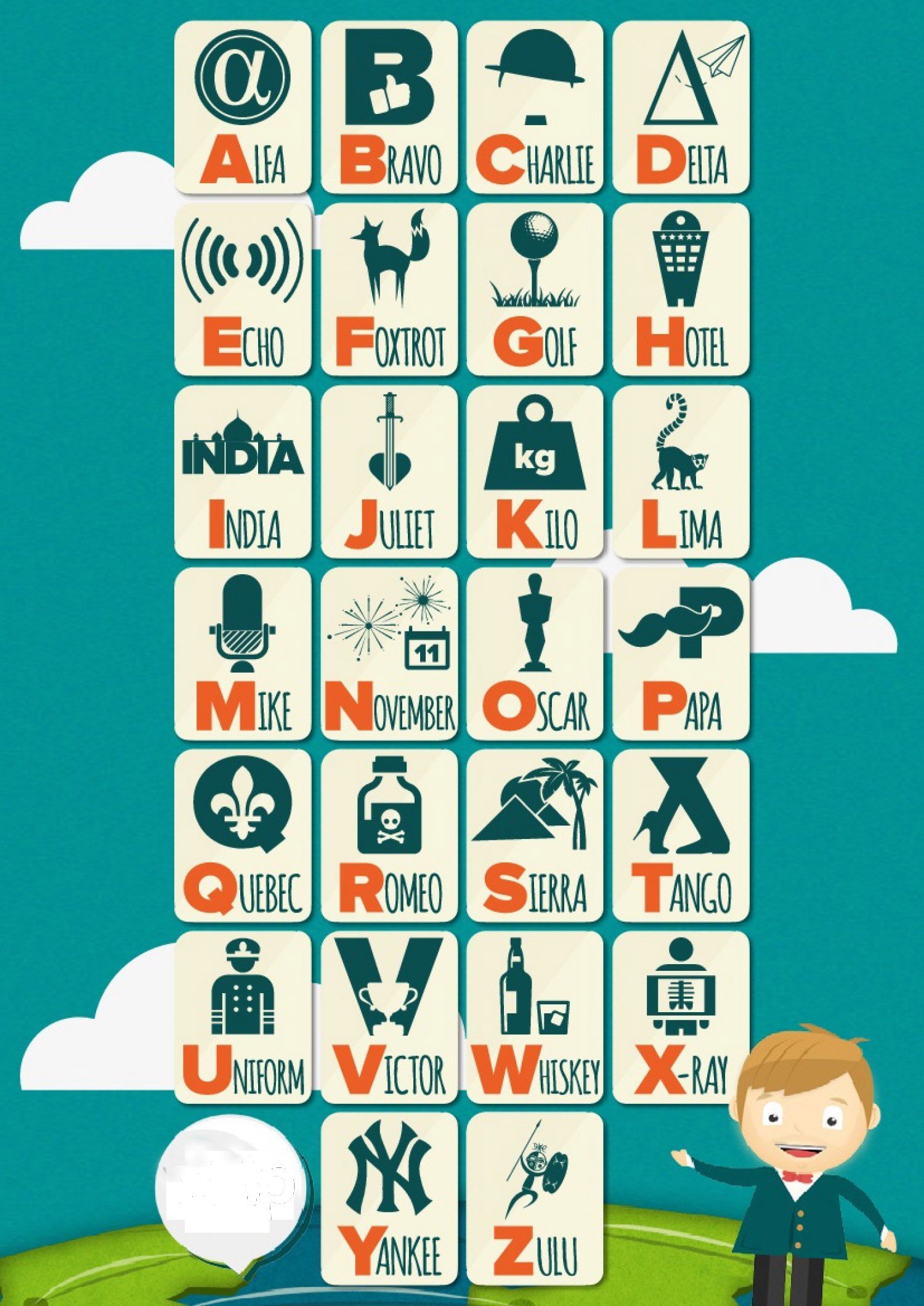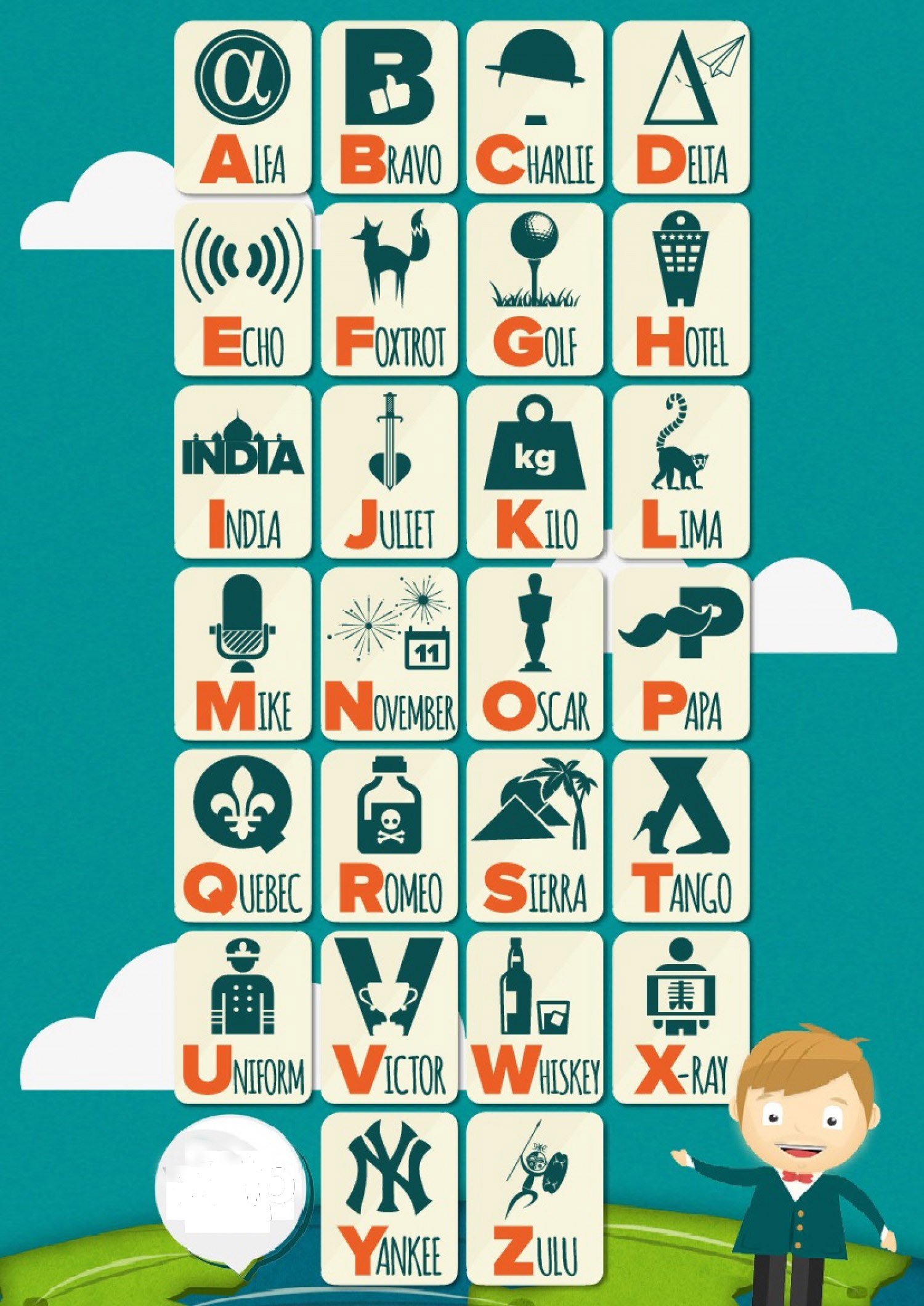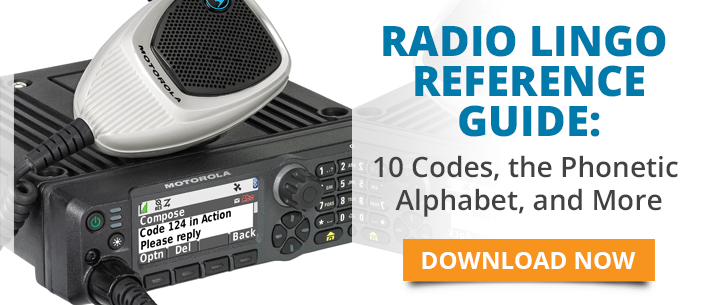 radio lingo, it’s one of the most universal.
radio lingo, it’s one of the most universal.The development of the police phonetic alphabet and military phonetic alphabet demonstrate the widespread utility for public safety and government, particularly over two-way radios, but there are multiple uses for civilian situations, too.
Here are some examples of how the international phonetic alphabet has taken off – in some cases, quite literally.
The Alpha, Bravo, Charlies
The term “phonetic alphabet” refers to the use of certain English language words to stand in for letters of the alphabet. The alphabet was developed to make early communications succinct and concise and to avoid confusion over letters that sound the same.
The phonetic alphabet has evolved over time, and today when people talk about the NATO alphabet, they’re referring to the one adopted in 1956 by the organization’s member states.
Today, the codes are recognized as:
Alpha, Bravo, Charlie, Delta, Echo, Foxtrot, Golf, Hotel, India, Juliet, Kilo, Lima, Mike, November, Oscar, Papa, Quebec, Romeo, Sierra, Tango, Uniform, Victor, Whiskey, X-ray, Yankee, Zulu
Up in the Air
One of the most common civilian uses for the alphabet is in aviation. The majority of major airlines use some version of the international phonetic alphabet both internally to communicate passenger information and with customers when finalizing flight details.
One common variation is for the letter D in airports where Delta Airlines flies heavily, because the airline’s identifier is also “Delta.” In those locations, Delta is replaced by "Data,” “Dixie” or “David.”
Civilian Industries
Other civilian settings where the alphabet is used include:
- Retail: to clarify customer or product information transmitted over the phone
- Healthcare: by personnel discussing medical information
- Information technology: where long strings of letters are common.
Beyond Radios
Despite its long history, the use of the international phonetic alphabet, like other radio lingo such as 10 codes, continues today and keeps evolving as it's adopted by radio users, non-users, public safety and civilians.
To get a free estimate on the best communications solution for your agency or business, click here.



